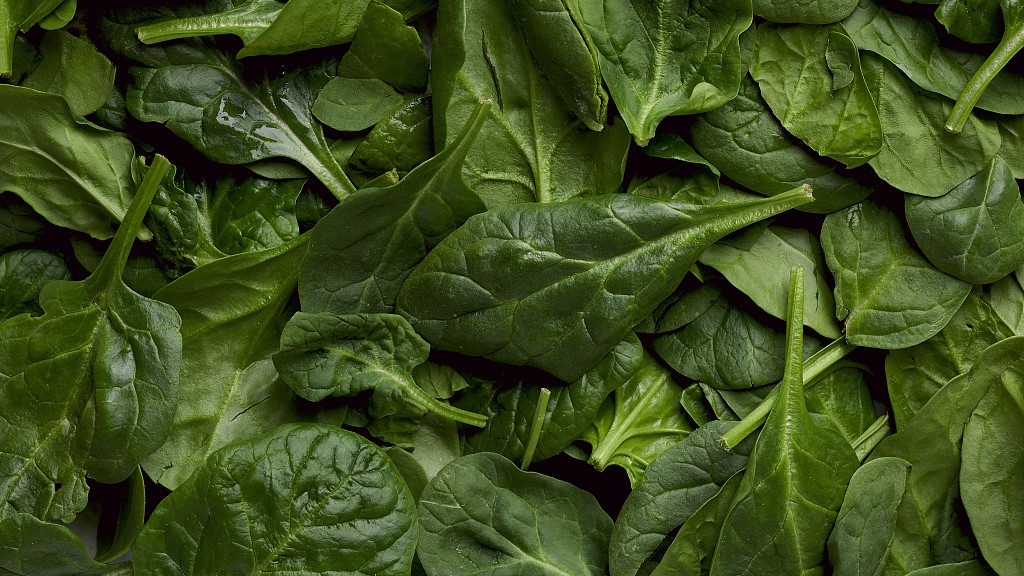
Chinese scientists use a device in young spinach leaves to render mammalian cells the plant-only skill of photosynthesis. /CFP
Chinese scientists use a device in young spinach leaves to render mammalian cells the plant-only skill of photosynthesis. /CFP
A group of Chinese scientists made a breakthrough as they rendered mammalian cells a unique skill owned by green plants – turning water and carbon dioxide into oxygen and food via sunlight – and revitalized those impaired animal cells.
The researchers from Zhejiang University developed an independent and controllable photosynthetic system derived from a device in young spinach leaves, according to the study published on Thursday in the journal Nature.
Then, they integrated this plant system into arthritic mice's degenerated chondrocytes, which are cells found in the cartilage, and demonstrated that the modified cells, following exposure to light, help improve the metabolic process in which complex molecules are synthesized from simpler ones with the storage of energy.
The researchers encapsulated the light-powered structure in a nanosized animal cell membrane coating as a camouflage to prevent the rodent's immune system from rejecting it as a foreign body.
In arthritis, the energy-generating devices within cells tend to lose steam, but the photosynthesis of plants is capable of producing the needed energy-carrying molecules, said the researchers.
The plant-derived system is shown to correct energy imbalance, restore cellular metabolism and protect against the chronic inflammation of the joints, according to the study.
Using the natural photosynthetic system as a therapeutic strategy for degenerative diseases, is "an exciting achievement that opens up possibilities of metabolism engineering," said the paper's peer reviewer Francisco Cejudo from the University of Seville.
Source(s): Xinhua News Agency